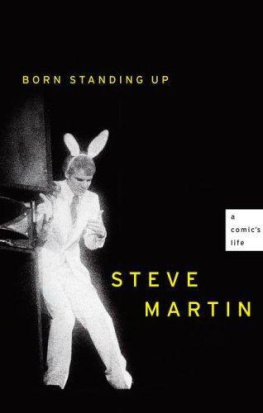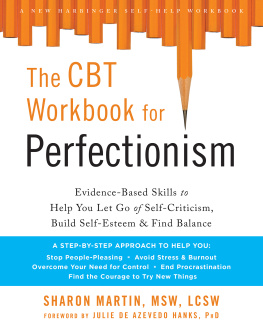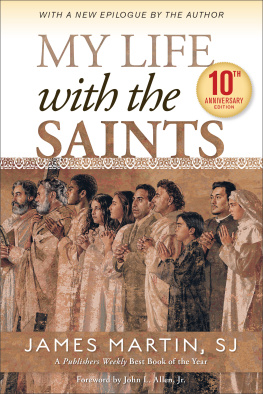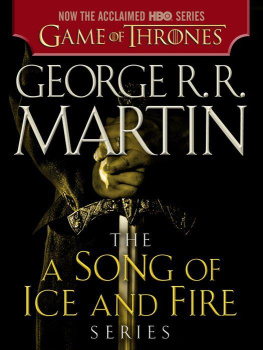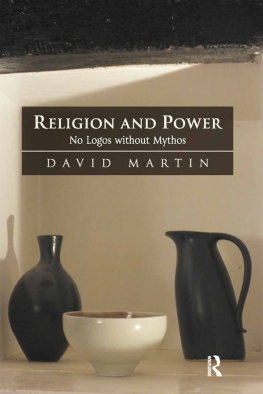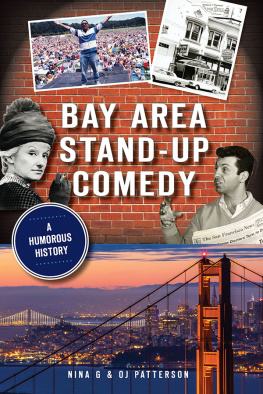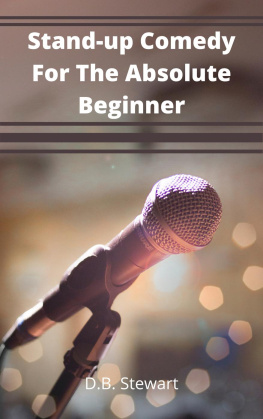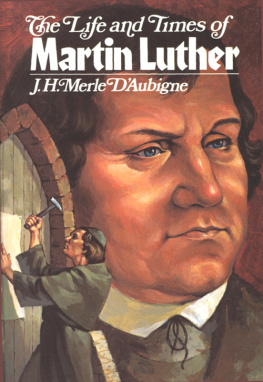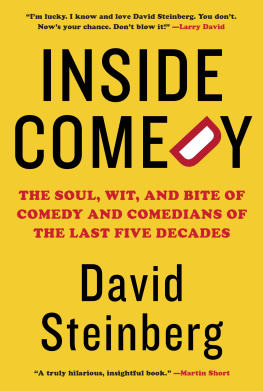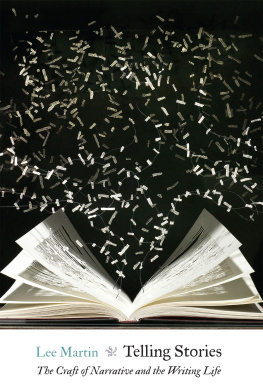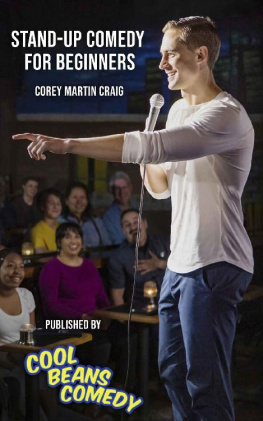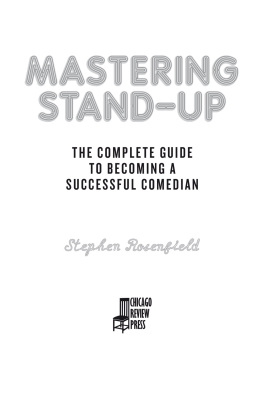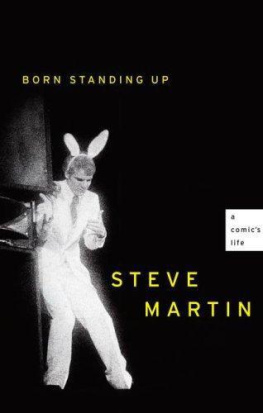
Also by Steve Martin
NOVELS
The Pleasure of My Company
Shopgirl
PLAYS
Picasso at the Lapin Agile
WASP
NONFICTION
Pure Drivel
Cruel Shoes
SCREENPLAYS
Shopgirl
Bowfinger
L.A. Story
Roxanne
The Jerk (coauthor)



Scribner
A Division of Simon & Schuster, Inc.
1230 Avenue of the Americas
New York, NY 10020
Copyright 2007 by 40 Share Productions, Inc.
All rights reserved, including the right to reproduce this book or portions thereof in any form whatsoever. For information address Scribner Subsidiary Rights Department,
1230 Avenue of the Americas, New York, NY 10020.
Scribner and design are trademarks of
Macmillan Library Reference USA, Inc., used under license by Simon & Schuster, the publisher of this work.
Library of Congress Cataloging-in-Publication Data
Martin, Steve, 1945
Born standing up: a comics life/by Steve Martin.
p.cm.
1. Martin, Steve, 19452. EntertainersUnited StatesBiography.
I. Title.
PN2287.M522A3 2007
792.7'028092dc22
[B]
2007027143
ISBN-13: 978-1-4165-6974-9
ISBN-10: 1-4165-6974-X
Photograph credits appear on last page.
Visit us on the World Wide Web:
http://www.SimonSays.com
To my father, mother,
and sister, Melinda
Contents
Born Standing Up
Beforehand
I DID STAND - UP COMEDY for eighteen years. Ten of those years were spent learning, four years were spent refining, and four were spent in wild success. My most persistent memory of stand-up is of my mouth being in the present and my mind being in the future: the mouth speaking the line, the body delivering the gesture, while the mind looks back, observing, analyzing, judging, worrying, and then deciding when and what to say next. Enjoyment while performing was rareenjoyment would have been an indulgent loss of focus that comedy cannot afford. After the shows, however, I experienced long hours of elation or misery depending on how the show went, because doing comedy alone onstage is the egos last stand.
My decade is the seventies, with several years extending on either side. Though my general recall of the period is precise, my memory of specific shows is faint. I stood onstage, blinded by lights, looking into blackness, which made every place the same. Darkness is essential: If light is thrown on the audience, they dont laugh; I might as well have told them to sit still and be quiet. The audience necessarily remained a thing unseen except for a few front rows, where one sourpuss could send me into panic and desperation. The comedians slang for a successful show is I murdered them, which Im sure came about because you finally realize that the audience is capable of murdering you.
Stand-up is seldom performed in ideal circumstances. Comedys enemy is distraction, and rarely do comedians get a pristine performing environment. I worried about the sound system, ambient noise, hecklers, drunks, lighting, sudden clangs, latecomers, and loud talkers, not to mention the nagging concern Is this funny? Yet the seedier the circumstances, the funnier one can be. I suppose these worries keep the mind sharp and the senses active. I can remember instantly retiming a punch line to fit around the crash of a dropped glass of wine, or raising my voice to cover a patrons ill-timed sneeze, seemingly microseconds before the interruption happened.
I was seeking comic originality, and fame fell on me as a by-product. The course was more plodding than heroic: I did not strive valiantly against doubters but took incre mental steps studded with a few intuitive leaps. I was not naturally talentedI didnt sing, dance, or actthough working around that minor detail made me inventive. I was not self-destructive, though I almost destroyed myself. In the end, I turned away from stand-up with a tired swivel of my head and never looked back, until now. A few years ago, I began researching and recalling the details of this crucial part of my professional lifewhich inevitably touches upon my personal lifeand was reminded why I did stand-up and why I walked away.
In a sense, this book is not an autobiography but a biography, because I am writing about someone I used to know. Yes, these events are true, yet sometimes they seemed to have happened to someone else, and I often felt like a curious onlooker or someone trying to remember a dream. I ignored my stand-up career for twenty-five years, but now, having finished this memoir, I view this time with surprising warmth. One can have, it turns out, an affection for the war years.
Coffee and Confusion
ON A HUMID MONDAY NIGHT in the summer of 1965, after finding an eight-dollar hotel room in the then economically friendly city of San Francisco, I lugged my banjo and black, hard-shell prop case ten sweaty blocks uphill to the Coffee and Confusion, where I had signed up to play for free. The club was tiny and makeshift, decorated with chairs, tables, a couple of bare lightbulbs, and nothing else. I had romanticized San Francisco as an exotic destination, away from friends and family and toward mystery and adventure, so I often drove my twenty-year-old self up from Los Angeles to audition my fledgling comedy act at a club or to play banjo on the street for tips. I would either sleep in my VW van, camp out in Golden Gate Park, pay for a cheap hotel, or snag a free room in a Haight-Ashbury Victorian crash pad by making an instant friend. At this point, my act was a catchall, cobbled together from the disparate universes of juggling, comedy, banjo playing, weird bits Id written in college, and magic tricks. I was strictly Monday-night quality, the night when, traditionally, anyone could get up to perform. All we entertainers knew Mondays were really audition nights for the club.

The Coffee and Confusion, ca. 1965.
I walked past Broadway and Columbus, where Lawrence Ferlinghettis ramshackle City Lights Books was jam-packed with thin small-press publications offering way-out poetry and reissues of long-ago-banned erotic novels. Around the corner on Broadway was Mikes Pool Hall, where bikers and hippies first laid eyes on each other, unsure whether they should beat each other up or just smoke pot and forget about it. Steps away was the hungry i, a nightclub that had launched a thousand careers, including those of the Smothers Brothers, the Kingston Trio, and Lenny Bruce, but I had to trudge on by. Just up Columbus, I passed the Condor, the first of a sudden explosion of topless clubs, where Carol Doda, in a newfangled bathing suit that exposed her recently inflated basketball breasts, descended from the ceiling on a grand piano that was painted virginal white. This cultural mlangeand the growing presence of drugsmade the crowded streets of North Beach simmer with toxic vitality.
The Coffee and Confusion was nearby on Grant Avenue, a street dotted with used-clothing stores and incense shops. I nervously entered the club, and Ivan Ultz, the show runner, slotted me into the lineup. I lingered at the back, waiting for my turn, and surveyed the audience of about fifteen people. They were arrayed in patchwork jeans with tie-dyed tops, and the room was thick with an illegal aroma. In the audience was a street poet, dressed in rags and bearded like a yeti, who had a plastic machine gun that shot Ping-Pong balls, which he unloaded on performers he didnt like. I was still untouched by the rapidly changing fashion scene; my short hair and conservative clothes werent going to help me with this crowd.
Next page
